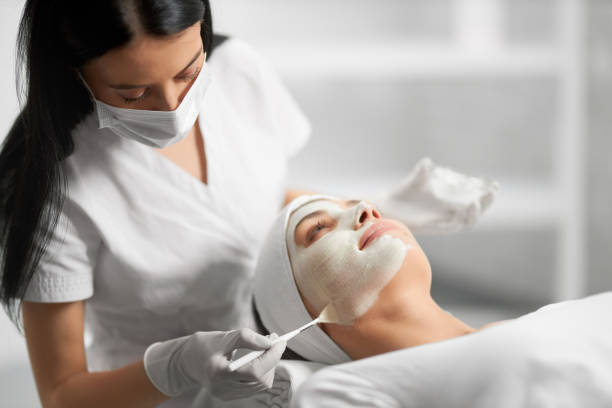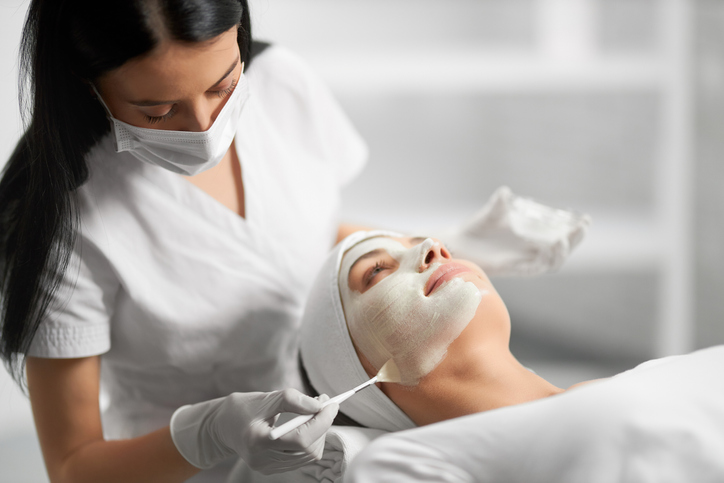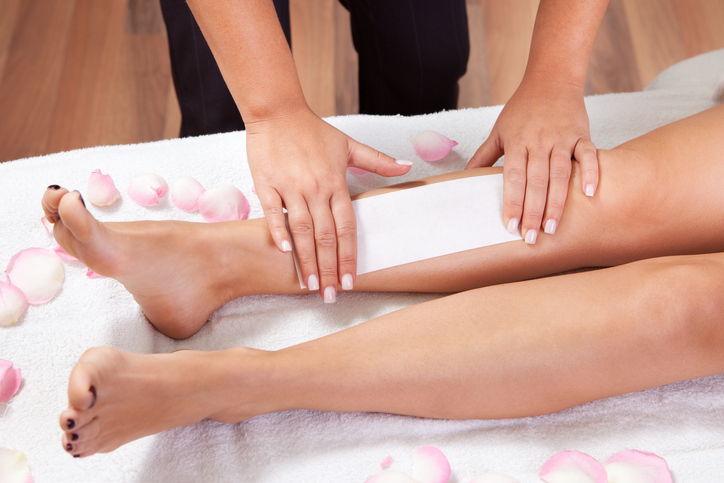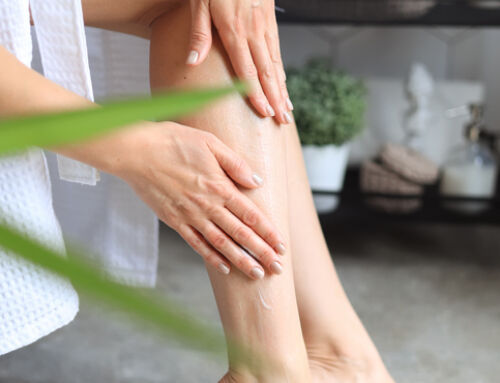
Dermatologist vs esthetician: Two types of experts you can see if you are having issues with your skin. Although they are both skin care specialists, their areas of expertise differ and they offer different treatments. Estheticians provides treatments that improve how your skin looks. On the other hand, a dermatologist is an expert in skin care.
What is the difference between a dermatologist and an esthetician?
Dermatologists are a type of doctor that specializes in the diagnosis and treatment of skin problems. For example, they may write prescriptions or employ office procedures such as cyst and growth removal or other skin care procedures.
Estheticians, however, provide treatments such as facials and gentle chemical peels that target the skin’s surface.
Understanding the differences between what an esthetician does and what a dermatologist does will help you select which professional is best suited to manage your personailized skin issues.
What exactly is a dermatologist?
A doctor that specializes in har, skin, nails, and other membranes. They are capable of identifying and treating over 3,000 disorders.
Dermatologists can:
A dermatologist with medical treatment experience will usually focus on the health of your skin. They are capable of identifying a variety of conditions, including:
Cosmetic doctors may focus on procedures that not while medically necessary, can assist you in achieving better-looking skin.
For example, if you wish change the fine lines and wrinkles or sunspots, you can consult with a cosmetic dermatologist.
In addition, they offer the following services:
For example, many dermatologists can prescribe acne medication. A physician who specializes in aesthetic treatments such as deep skin peels and laser treatments, on the other hand, can assist you in researching options for minimizing the visibility of acne scars.
Yet, every dermatologist is qualified to do medical and cosmetic treatments.
Another significant distinction is where they practice
Dermatologists commonly work in private practices and specialty clinics, with larger healthcare systems or hospitals typically employing only those who specialize in performing medical procedures. Medical spas may recruit dermatologists with expertise in aesthetic surgeries.
It should also be mentioned that insurance companies normally pay for medical dermatology treatments deemed vital for your health but not for optional cosmetic procedures.
Qualifications and training
Dermatologists must complete at least 12 years of schooling and training before commencing their careers. Once they have a bachelor’s degree, they can:
After finishing residency training, a dermatologist can sit for a certification exam. If a dermatologist has board certification, their name will be followed by the letters FAAD.
Boards in North America that can provide this certification include:
What exactly is an esthetician?
Estheticians are specialists who have received specialized training in treating the skin’s outermost layers. They may advise you on how to care for and improve the appearance of your skin.
They frequently cannot, unlike dermatologists, because they lack medical training:
An esthetician can provide the following services:
Medical estheticians, sometimes known as aestheticians, may interact with dermatologists or cosmetic surgeons in more clinical settings, such as dermatology clinics and other healthcare institutes. These professionals could deliver therapies such as:
Qualifications and training
Each of the 50 states requires a license for estheticians to practice. To begin, prospective estheticians must have a high school diploma or GED in order to enroll in cosmetology school. These programs typically span 4 to 6 months and require 600 hours of training.
State-specific degree requirements vary from 250 to roughly 1,000 hours of education.
After completing their studies, a certified esthetician must pass a state-approved exam. These exams include a written element as well as a practical, or hands-on, component in which you treat a volunteer model or mannequin.
After acquiring their state license, an esthetician may choose to pursue national certification through the National Coalition of Estheticians Organizations (NCEA). This is the most advanced level of esthetician education accessible, and it includes in-depth teaching in cutting-edge laser, facial, and drainage techniques.
How do I know which one to pick?
Both estheticians and dermatologists are qualified specialists that can help you with your skin care needs. Often, your decision will be dependent on your specific problems.
When to consult a dermatologist vs esthetician?
In general, you should consult a dermatologist if you have any medical issues, such as:
If you don’t have any specific symptoms but still want to improve the appearance of your skin, an esthetician can perform microdermabrasion, facials, and other superficial treatments.
Just keep in mind that in most jurisdictions, only dermatologists are permitted to do more invasive procedures such as Botox, dermal fillers, and scar revision surgery.
Here are a few additional distinctions to remember:
- Peels
Estheticians, for example, can do alpha hydroxy acid peels. In some areas, they can also perform light glycolic acid peels. Only dermatologists are qualified to do deep peels that reach the middle layer of skin, such as those containing phenol or trichloroacetic acid. - Laser treatments
In the majority of states, laser treatments can only be administered by dermatologists. Yet, certain countries allow estheticians to use lasers for specialized procedures such as laser-based skin rejuvenation and laser hair removal. - Microneedling
Although this service is frequently classified as a medical treatment in most locations, estheticians are typically unable to provide it. In some countries, estheticians working in medical settings are allowed to conduct microneedling with the supervision of a licensed physician.
If you’re suffering from acne, skin discoloration, or persistent dryness, you should usually consult a dermatologist first.
They can diagnose and treat skin problems by recommending medicines or other medical procedures. They may then recommend that you consult with an esthetician, who may also help you design a skin care plan to keep your skin in the best possible condition.
How to locate treatment?
Before visiting a dermatologist, you should usually contact your insurance company. Most employers will not pay for your session unless you have a referral from your primary care physician (PCP). If this is the case, your primary care physician can examine your skin and, if required, refer you to a dermatologist in your area.
If you’re looking for a dermatologist on your own, find out which dermatologists are in your insurance network.
Taking your specific needs into account might also help you find the right specialist. For example, a medical dermatologist is able to help with severe acne or rosacea, whereas a surgical dermatologist is able to get rid of skin cancer or other benign growths.
When selecting an esthetician, you could begin by obtaining recommendations from trustworthy close friends or relatives.
Always verify that they are lawfully licensed to work in your jurisdiction. Find one with NCEA certification as well, as previously mentioned.
Check online reviews of their products or services and inquire about their areas of specialization ahead of making an appointment.
Contact a dermatologist vs esthetician expert today!
Looking for skincare guidance from a professional? Sweatheart Wax believes in the ability of physicians and estheticians to assist you in achieving your finest skin ever. While dermatologists may detect and treat medical skin disorders, estheticians are qualified skincare specialists who focus on enhancing your skin’s general look and health. We’ve got you covered if you’re seeking for a personalized skincare program or want to learn how to become an esthetician yourself. Shop our finest vegan and organic waxing products to elevate your self-care regimen. Sweatheart Wax is now offering the services of dermatologist vs esthetician.









